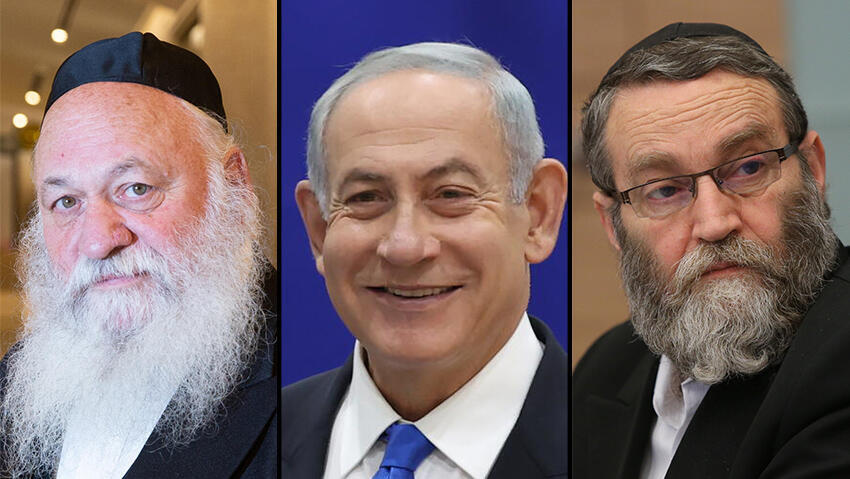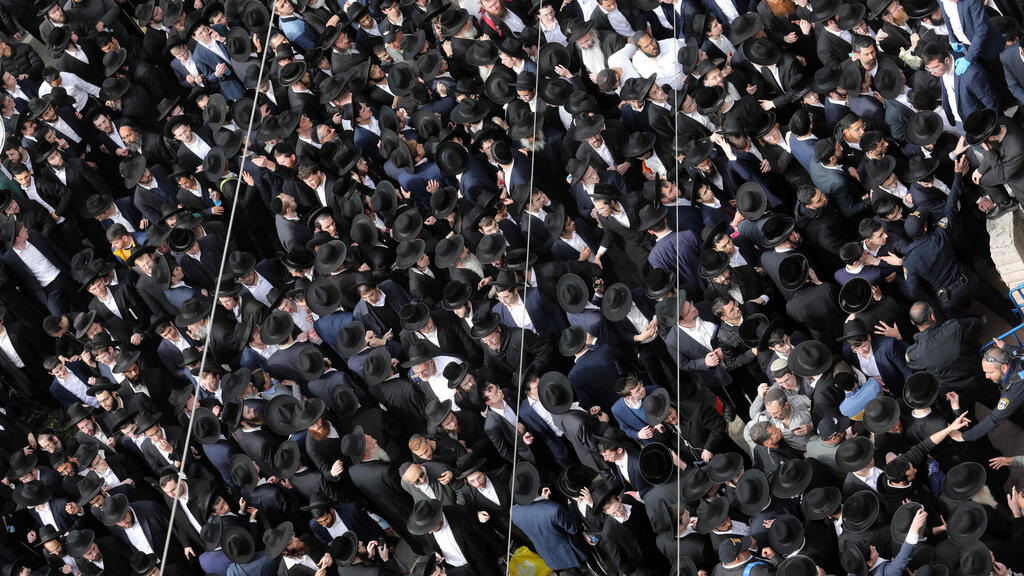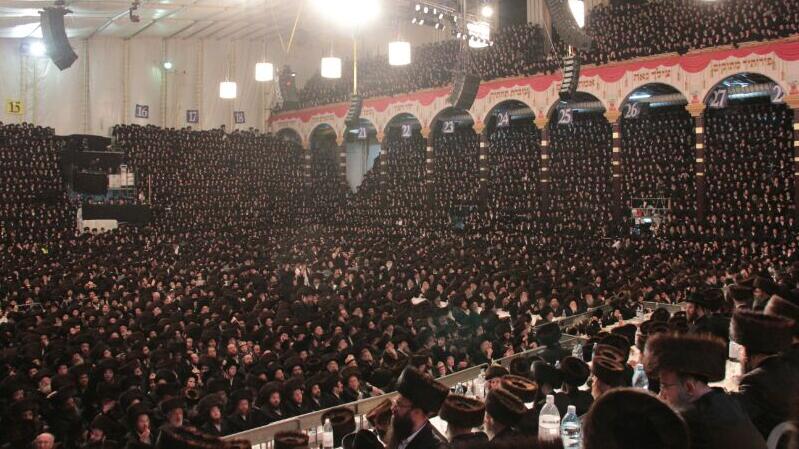Getting your Trinity Audio player ready...
A new political crisis has emerged in recent days, threatening to cause a rift among ultra-Orthodox Knesset factions, and endangering opposition leader Benjamin Netanyahu's return to power after the November 1 elections.
The Ashkenazi Haredi factions that make up the United Torah Judaism Party and have been a constant component of Netanyahu's right-wing and religious bloc, have been feuding over political matters as well as ideological and religious ones.
3 View gallery


Agudat Israel head Yitzchak Goldknopf, opposition leader Benjamin Netanyahu and Degel HaTorah chief Moshe Gafni
(Photo: Alex Kolomoisky, Amit Shabi)
The party is an alliance of two factions of Haredi Jews: Agudat Yisrael representing the Hassidic group formerly led in the Knesset by Yaakov Litzman, who has since been forced to resign, and the more conservative Degel Ha Torah, representing the more conservative, Lithuanian stream, led by MK Moshe Gafni.
The factions have long battled over who will hold the senior positions in their alliance. But that is the political aspect of their feud, which is likely to be resolved soon.
In their confrontation over religion and ideology, solutions would be harder to reach.
Over the past year, the Hassidic Belz dynasty, the second largest in Israel, has been negotiating with the Education Ministry over the establishment of a new and separate school system for their flock, that would include in its curriculum the non-religious study of basic math, English and science and in return - receive state funds.
Israel has failed to enforce the teaching of secular subjects in ultra-Orthodox schools, which insist that their students be exposed only to religious study and not waste valuable hours on other subjects. The government has only been able to withhold funding to those institutions.
Since Haredi men survive on stipends while studying the Torah, and those who attempt to enter the workforce do so often lacking basic education, many are condemned to poverty.
Belz's move, prompted by a desire to improve the lot of its members, enraged the Lithuanian spiritual and political leadership, which fears the precedent will impact their learning institutions as well and end their monopoly over schooling for all Haredi children.
But the efforts by Netanyahu to mediate between the factions was not unanimously welcomed. One United Torah Judaism senior member told Ynet that the opposition leader should mind his own business.
3 View gallery


Crowds of Haredi men attend the funeral of spiritual leader Chaim Kanievsky
(Photo: AFP)
"We do not like Netanyahu interfering," he said. "These are matters of ideology, which he knows nothing about nor has any understanding of," the official says.
"This is not about political positions. Why is he interfering in the first place?" he asks.
Negotiations are currently stalled, but sources say that the spiritual leaders of both factions are in dialogue while their representatives flood Haredi media with extreme positions.
Observers believe the feud will be resolved before the September deadline to present the parties and candidates ahead of the November 1 ballot.


